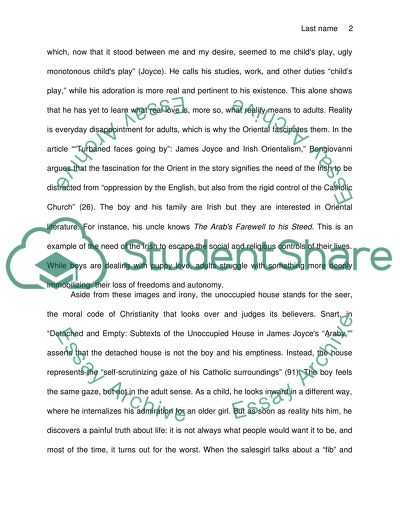Cite this document
(Illusion to Reality in Joyces Araby Book Report/Review, n.d.)
Illusion to Reality in Joyces Araby Book Report/Review. https://studentshare.org/literature/1457864-literary-analysis-focusing-one-analysis-discussed
Illusion to Reality in Joyces Araby Book Report/Review. https://studentshare.org/literature/1457864-literary-analysis-focusing-one-analysis-discussed
(Illusion to Reality in Joyces Araby Book Report/Review)
Illusion to Reality in Joyces Araby Book Report/Review. https://studentshare.org/literature/1457864-literary-analysis-focusing-one-analysis-discussed.
Illusion to Reality in Joyces Araby Book Report/Review. https://studentshare.org/literature/1457864-literary-analysis-focusing-one-analysis-discussed.
“Illusion to Reality in Joyces Araby Book Report/Review”. https://studentshare.org/literature/1457864-literary-analysis-focusing-one-analysis-discussed.


